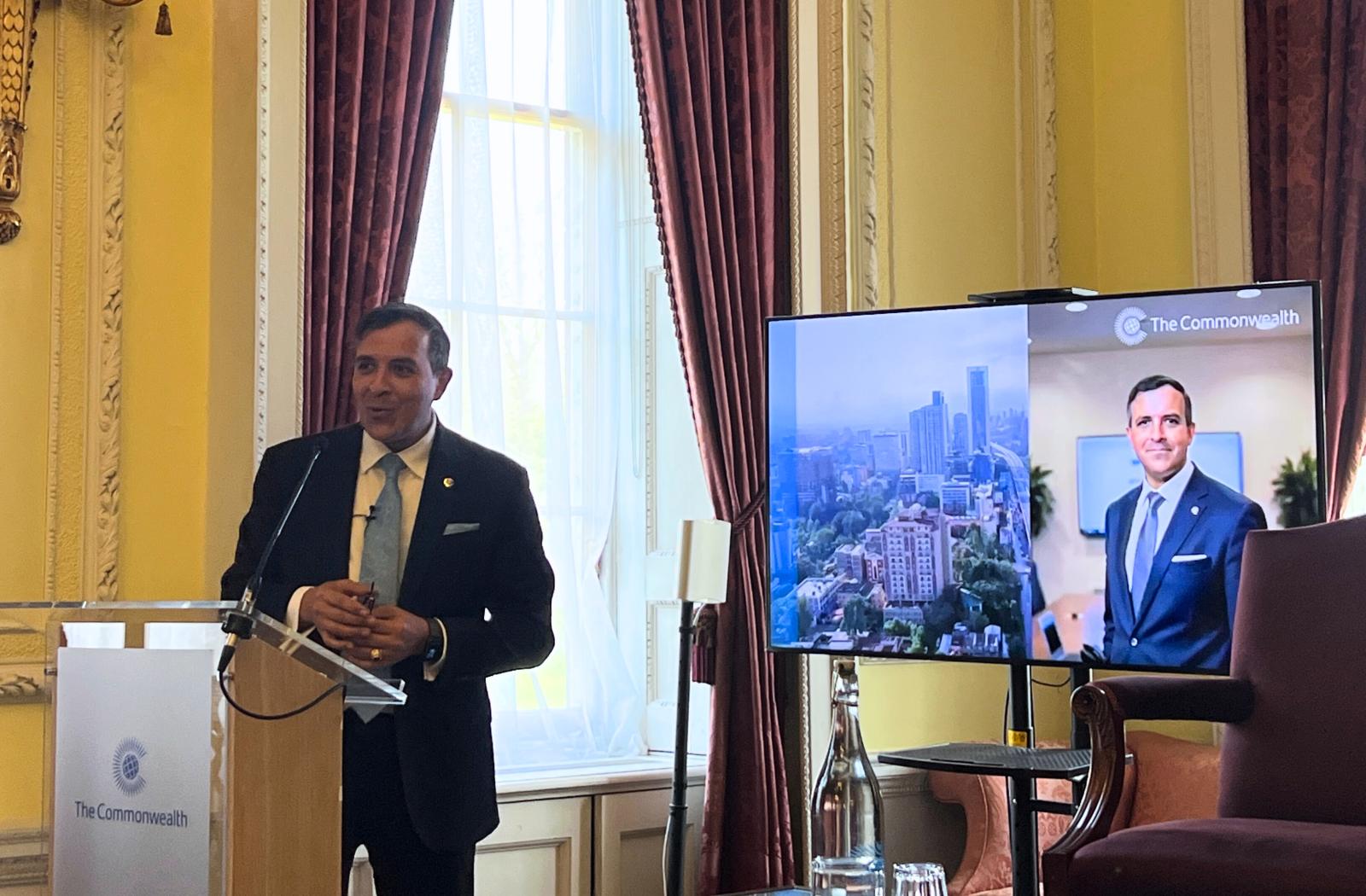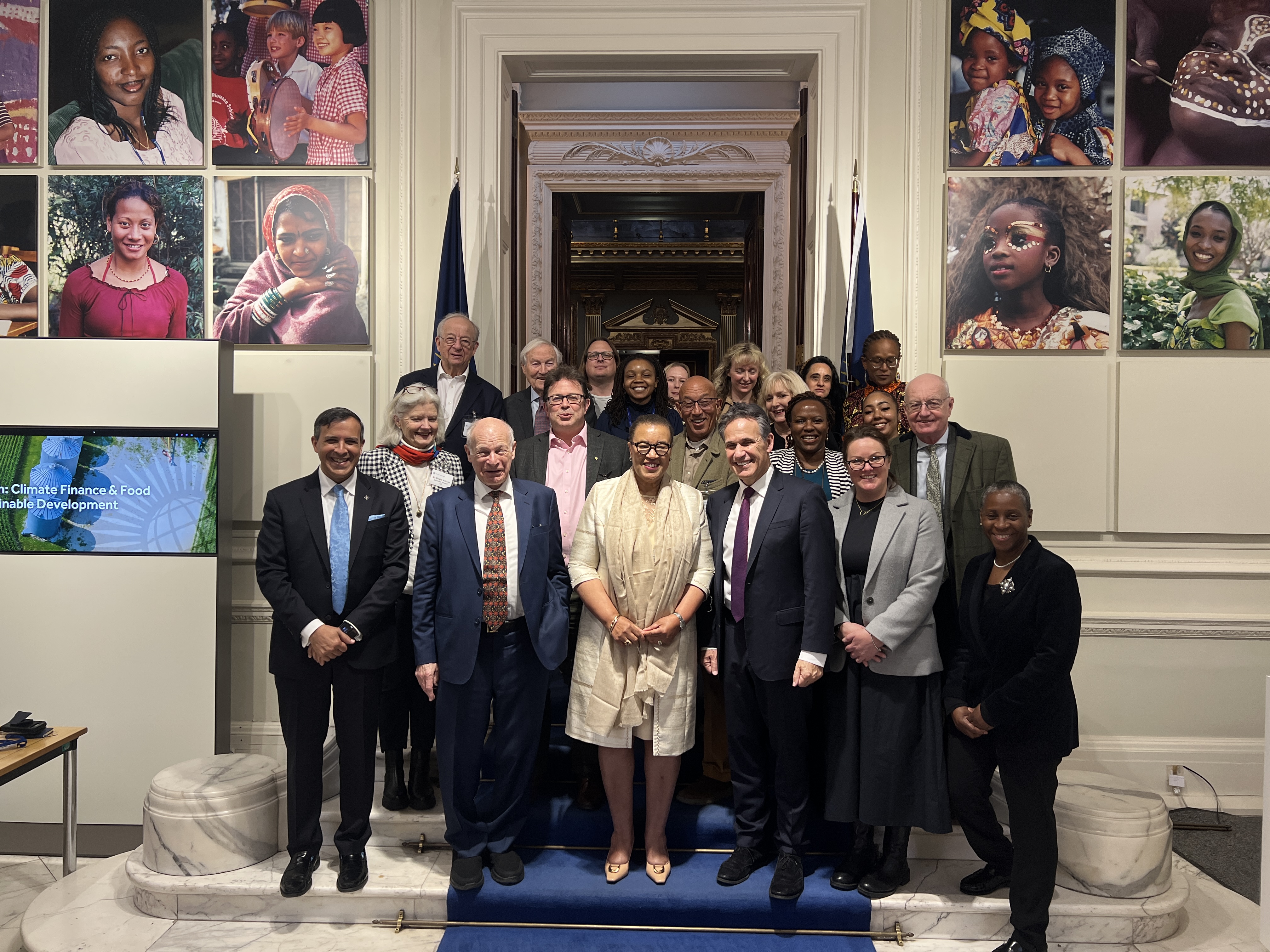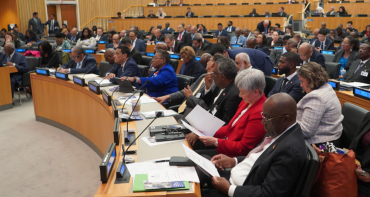At the Commonwealth Secretariat, a discussion on Artificial Intelligence (AI) and access to justice, as part of its Rule of Law Conversations series, generated robust conversations and spirited debates long after the session ended.

The event, held on Monday, 24 March 2025, explored the intersection of AI and the legal profession, focusing on its implications for the administration of justice.
The discussion was attended by legal professionals, policymakers, academics, and other stakeholders who used the opportunity to explore the potential benefits and challenges associated with the use of AI in the legal field.
The Commonwealth Secretary-General, the Rt Hon Patricia Scotland KC, noted when she assumed the role, she wanted to ensure that the rule of law was at the core of the work of the Secretariat.
Professor Luis Franceschi, the Commonwealth Secretariat’s Assistant Secretary-General, opened the session, noting that AI is increasingly powerful, which he illustrated with an avatar that replicated his image, mannerisms and voice on screen.
AI’s rapid growth and future in justice
Prof Richard Susskind OBE, a noted expert on the future of legal services, provided the keynote address. Prof Susskind is President of the Society for Computers and Law and, since 1998, has been Technology Adviser to the Lord Chief Justice of England and Wales. He also serves as the Secretary-General’s Special Envoy for Justice and Artificial Intelligence.
Susskind posited that, in the future, AI systems will be far more powerful, and their utility will expand exponentially, noting that “far more has happened in the last four years, than in the last 40”.
Later, Prof Susskind was joined by Lord David Neuberger for a panel discussion and further exploration of the issues. Lord Neuberger is a non-permanent Judge of the Hong Kong Court of Final Appeal and a former President of the United Kingdom Supreme Court.
During the conversation, Lord Neuberger shared that ChatGPT has been able to pass the bar, suggesting that AI could be used to provide legal advice or even resolve disputes. He believes that people may opt to have their justice resolved using AI rather than judges, noting that this is not likely to be the case now.
Ethical issues were also raised in the discussion, including considering whose ethics and values are employed and what safeguards should be put in place. There was also a robust discussion about the legal status of machines as well as the social and political implications of the use of technology. The panel offered that there may come a time when people wouldn’t be able to break the law, giving the example of a self-driving car that could remove the opportunity to speed.

Ethical and democratic considerations
The panel discussion was expertly moderated by Fiona Rutherford, Chief Executive of JUSTICE, a law reform and human rights organisation working to strengthen the justice system in the United Kingdom.
The audience also questioned whether artificial intelligence is truly democratic, as digital skills vary, and AI often reflects current societal challenges. Lord Neuberger suggested those inequities will persist without a concerted effort to make technology more egalitarian.
It was also noted that lawyers and judges should develop the rigour to evaluate AI systems to ensure that they can offer an authoritative view.
The Commonwealth Secretary-General also proposed a need to educate people to learn at pace with the machines, adding that the best model would be to have artificial intelligence expand, rather than replace, human intellect and consciousness.
In November 2022, at the Commonwealth Law Ministers Meeting in Mauritius, law ministers mandated the Commonwealth Secretariat to adopt a holistic approach to artificial intelligence in the sector. They asked the Secretariat to scope emerging practices on artificial intelligence across the 56 member states and consider developing principles that align with Commonwealth values and principles.
Media contact
-
Charmaine Wright Head of Media Relations, Communications Division, Commonwealth Secretariat
- +44 20 7747 6242 | E-mail



